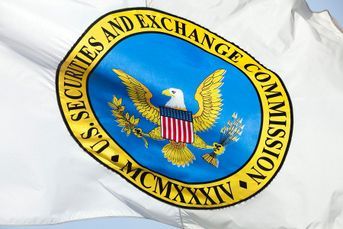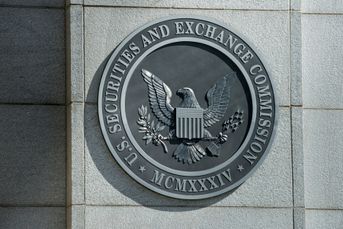The SEC’s opportunity to serve the best interests of investors

But the agency's proposal does not require brokers to be fiduciaries for clients, instead establishing an undefined "best interest" rule.
In my first column, I tried to give some historical context on how we got here: With margins rapidly declining, broker-dealers found safe haven in asset-based fees. While their shareholders enjoyed the recurring revenue, the underlying services that brokers furnished their clients didn’t change much.
Retail investors can’t be expected to be the watchdog for such nuances. There are securities regulators for that. But regulators were focused on curbing epidemics such as churning and market timing rather than being concerned about fees. So the cops on the beat just kept walking right by investors who were buying something entirely different than they were getting. The cops called the services “indistinguishable.”
Today’s brokerage industry has two big problems. First, according to Cerulli Associates, in the five years from 2011 to 2016, the portion of U.S. investors who work with wirehouse brokerage firms fell four points, from 63% to 59%. Over the same period, the market share of advisers in the independent channels —independent broker-dealers, registered investment advisers and hybrid RIAs — increased by the same 4 points, from 37% to 41%. Coincidence?
Although the factors driving this client migration could be debated, there is an unmistakable correlation between increased investor awareness of the difference between registered investment advisers’ fiduciary standard and brokers’ more lax suitability standard. In recent history, this disparity was highlighted by the 2010 Dodd-Frank Act and, more recently, the Department of Labor’s attempt to create a fiduciary duty for brokers pushing for IRA rollovers and servicing retirement accounts.
The brokerage industry’s second problem is really a first world problem. It’s a victim of its own excess — er, success. The scope of that success was quantified by the Obama Administration’s Counsel of Economic Advisors, which in 2015 reported that sales of overpriced investments cost retirement investors a whopping $17 billion annually. And that’s just on retirement accounts.
If the SEC required brokerage firms (and their agents) to be bona fide fiduciaries, with responsibilities to consider investment costs, avoid conflicts of interest and disclose those conflicts that remain, it would substantially cut into their revenues and likely send clients packing. But it would seem that actually allowing brokers to continue doing business as usual would blatantly violate the SEC’s mandate to protect investors.
(More: Fiduciary watchers say problems with SEC advice rule portend long slog)
In addressing these two issues, the SEC has an opportunity to engage in its most significant rule-making in a generation by finding the right balance between the business concerns of the brokerage industry and the protection of the investing public from predatory sales practices.
One approach would be for the SEC to follow the recommendations of the Tully Report, which it commissioned in 1995 to offer solutions to the conflicts of interest inherent in the brokerage industry. The report recommended the creation of best practices that would align the interests of all three parties to brokerage transactional relationships: brokerage firms, investment product companies and investors. By the way, Daniel Tully was the chairman and CEO of Merrill Lynch at the time.
(More: Democrats criticize SEC advice rule, push for fiduciary standard)
Unfortunately, the commission has chosen a different course with its proposed Regulation Best Interest. To stem the defection of fiduciary-conscious consumers without substantially impacting brokerage revenues, the SEC is giving the brokerage industry a bailout, one that’s just a bit more subtle than those we swore off of in 2008.
Specifically, Reg Best Interest will not require brokers to be fiduciaries for their clients. Instead, brokers are getting an undefined “best interest” rule, one that will actually allow them to claim that they too act in the investors’ best interest while key issues such as a focus on investment costs remain on the sidelines. It’s the sequel to brokerage asset-based pricing, not the cure.
Meanwhile, registered investment advisers will operate under the “Standards of Conduct for Investment Advisers.” Despite its humble branding, the standard requires them to act as a fiduciary at all times, meaning they must place their interests below the client’s. The fiduciary standard also includes a duty of loyalty and care, which is belt and suspenders to ensure that advisers must act in the best interests of their client.
So get this: Brokers will claim that they operate under a best interest standard while registered investment advisers will be left to claim they satisfy the standards of conduct for investment advisers, despite actually being held to a fiduciary standard. It’s simply marketing duplicity.
In my previous article, I wrote that the SEC needs to level with investors: It should clearly articulate what brokers and brokerage firms owe to their clients and what they are not required to do. To fulfill its obligation to retail investors, the SEC also needs to ensure that the differences between brokers and RIAs are accurately described and labeled. Anything less is misleading.
Consider this: If RIAs weren’t already fiduciaries but rather were subject to the standard of care proposed for brokers in Reg Best Interest, yet some aggressive RIA decided to claim that its standard was a “best interest” one, I’m confident that the SEC would take the position that the RIA was engaged in misleading marketing claims.
We need brokers to work with investors who know what they want to buy and need the transaction facilitated. But we don’t need regulation that props up a dying business model. If people want client-centered fiduciary advice, then the SEC needs to protect investors by ensuring that anything less doesn’t carry that esteemed label.
I’d like to think we’re long past the days you could get away with the kind of hollow “best interest” branding that the SEC is currently contemplating. We’re in an information-driven world, where literally thousands of journalists and other observers are monitoring the financial services industry and what’s going on here. If the SEC thinks its “best interest” swap will be the sequel to brokerage asset-based pricing and escape public scrutiny, it’s in for one heck of a surprise.
Brian Hamburger, president and CEO of MarketCounsel and the Hamburger Law Firm, is an attorney, counselor and strategist to entrepreneurial wealth managers.
Learn more about reprints and licensing for this article.







